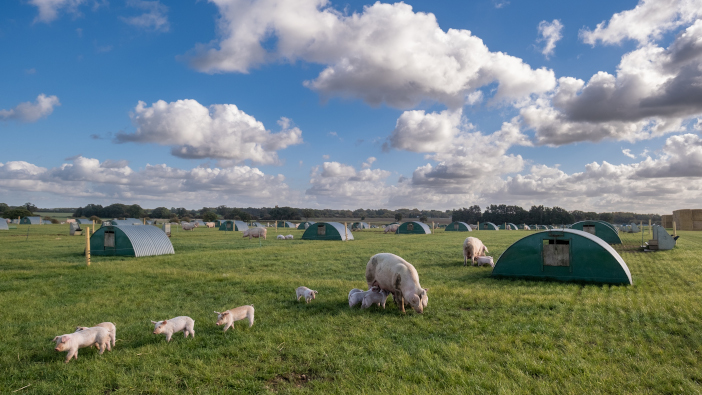Applications for the new Sustainable Farming Incentive (SFI) will be accepted from today.
The scheme is due to pay farmers in England to take action to support food production, farm profitability and resilience as well as protecting the environment.
This comes following last week’s announcement from Defra that SFI payments would be accelerated to meet the needs of farmers. Those with a live SFI agreement before the end of the year will receive their first quarterly payment – worth 25% of the annual value of their agreement – by the end of this year. This will typically be paid in the first month of their agreement starting,
The 2023 SFI scheme has been expanded and now offers more than twice as many new SFI actions as originally planned. 23 paid-for actions are on offer including on hedgerows, nutrient management, farmland wildlife and low input grassland, and improvements mean farmers can choose what combination of actions are right for them.
Defra Secretary Thérèse Coffey, said: “I have been delighted by the registrations of interest from farmers across a diverse range of farm types in our new Sustainable Farming Incentive scheme. It highlights how the SFI has something on offer for every type of farmer.
Hundreds of early adopter farmers were invited to apply ahead of today’s wider rollout, with applications already submitted and the first agreement under the SFI scheme already issued.
Farmers with existing Countryside Stewardship and Environmental Stewardship agreements are among these early adopters. They have already been invited to apply, and Countryside Stewardship and Environmental Stewardship agreement holders will be able to apply alongside those who are not yet in an agreement.
Farmers with SFI 2022 agreements are also able to express their interest to apply to the new scheme. Invitations to apply have already been sent to some SFI 2022 agreement holders who submitted expressions of interest, and they can begin their applications alongside everyone else.
Earlier this month, the NFU warned that delays in SFI payments will leave farmers in England short of funds in the run-up to Christmas, at a time when existing payments are being cut. It called on ministers to halt any further reduction in existing farm payments – due to fall by another £720m this year alone – until delivery problems with SFI are resolved.
After, Defra responded by committing that those farmers able to sign up in October would be paid 25% of the money this year once their claims were agreed, NFU president Minette Batters said: “This announcement will provide welcome progress, but it doesn’t go far enough to deliver on the promises made countless times that the replacement to BPS would be open to all, less bureaucratic and offer a profitable and seamless transition from old to the new. What we have today, after years in the making, is still a million miles away.
“Under the current plans the SFI is open to the few and not the majority. The lack of budget transparency in Defra makes it almost impossible to know where the BPS money, initially earmarked for SFI in 2023-24, has gone.
“In the short-term, we need the government to bridge the gap it has created in taking away one set of payments before delivering access to their replacements by ensuring farm support payments made in December are not capped as currently planned.”
Farming & Countryside Programme Annual Report
Defra’s annual report provides detail on how the farming budget has been allocated.
It details that commitments made to maintaining the annual farming budget at £2.4 billion per year on average is on track, with all spend released through reducing area-based Basic Payment Scheme (BPS) payments made available to benefit the farming sector and farmers in England. Higher spend planned in the final year of the Parliament means the government will spend an average of £2.4 billion per year over the Parliament.
In 2022-23, £1.37 billion was spent on basic payments, having implemented two years of initial reductions. This compares with £1.8 billion in 2020/21 before payments started to be phased out. The spend on basic payments is reducing again this year to £1.1billion.
In 2022-23, the department has doubled spending on ELM schemes, increased spending on productivity and innovation grands and more than doubled funding available for the first round of the Slurry Infrastructure Grant.




